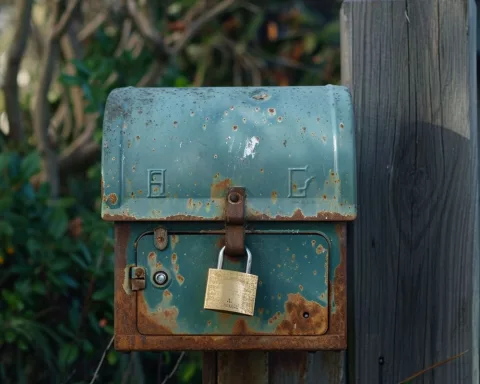The South African Post Office is in big trouble, facing a financial disaster known as “Day Zero,” where it might run out of money soon. Poor management and a failure to keep up with modern technology have left it struggling against faster, smarter competitors like Paxi and PUDO. As SAPO’s services slow down, customers are turning away, putting thousands of jobs at risk. Although all hope isn’t lost, the Post Office needs to act quickly, team up with other companies, and innovate to survive in a world that demands speed and reliability.
What is causing the crisis at the South African Post Office?
The South African Post Office (SAPO) faces a financial crisis due to poor management, lack of innovation, and increasing competition. “Day Zero” approaches as funds dwindle, revealing the organization’s inability to adapt to modern demands and technological advancements, threatening jobs and public trust.
Looming Financial Catastrophe
The South African Post Office (SAPO), once an essential part of the nation’s communication infrastructure, now stands on the brink of an unprecedented crisis. The organization faces “Day Zero,” a point where it will run out of funds, and there is no government bailout in sight. Formerly a robust institution, SAPO has deteriorated into a hollow shell plagued by inefficiencies and financial losses. The leadership’s silence offers no hope or plan to navigate through this quagmire of mismanagement and debt, suggesting an inevitable collapse.
Earlier this month, CEO Fathima Gany reported to the Communications and Digital Technologies portfolio committee that SAPO’s remaining funds would only last until October. This critical juncture, referred to as “Day Zero,” starkly contrasts with SAPO’s historical prominence when it was a cornerstone of South Africa’s communication network. A combination of poor management, workforce reductions, and a lack of investment in modern IT systems has crippled this state-owned enterprise.
State-owned enterprises like SAPO are not immune to the pressures of modernization. The failure to embrace innovation has led to SAPO’s current predicament. While the world progressed with digital transformations and modern logistics, SAPO remained mired in bureaucratic inertia. Competitors like PostNet capitalized on this inefficiency, capturing the market with superior services. Instead of innovating, SAPO resorted to legal battles, as evidenced by its 2018 lawsuit against PostNet and the SA Express Parcel Association to uphold exclusive rights by preventing them from delivering small packages. This reactionary strategy underscored SAPO’s reluctance to adapt to competition.
Competitors and Innovation
While SAPO struggled, new competitors like Paxi and PUDO emerged, revolutionizing the market. Paxi, under Pepkor Ltd’s Pep stores, and PUDO, in collaboration with The Courier Guy, introduced locker-to-locker solutions with rapid turnaround times. They essentially reinvented the services SAPO once provided but with a modern, efficient twist. This inability to compete with more agile newcomers highlights one of SAPO’s core weaknesses: a failure to innovate and modernize.
Even global e-commerce giants like AliExpress and Shein have bypassed SAPO, opting for Buffalo Logistics instead. The rationale is straightforward: consumers prioritize efficiency, speed, and transparency. SAPO’s slow turnaround times and logistical complications have made it an unreliable partner in the eyes of these international brands. This is a harsh reality for a state entity that once held a monopoly over postal services.
At the core of SAPO’s struggles is its leadership—or the glaring lack thereof. The leadership’s failure to innovate, improve customer service, and meet the demands of a modern economy has left SAPO in financial disarray. Instead of adapting to the digital age, the organization clung to outdated practices that no longer serve today’s market, paying the price for years of negligence and poor decision-making.
Potential for Revival
However, all hope is not lost for SAPO. Retail giants like Checkers or SPAR, along with existing partners like PostNet, could potentially revive SAPO if it is open to collaboration. Similar to PEP’s partnership with Paxi, these alliances could help rejuvenate SAPO’s service model. Such partnerships would essentially see SAPO semi-privatized, but this is far better than risking extensive job losses. Additionally, from a transparency perspective, it’s arguably best that governments do not have total control over certain departments—especially when there’s a proven track record of failure.
Time is running out, and SAPO needs to act swiftly if it hopes to avoid complete extinction. Today’s consumers are impatient and justifiably so. They demand quick service, real-time tracking, and reliable communication. SAPO’s failure to meet these expectations is one of the primary reasons for its decline. If SAPO had invested in a user-friendly tracking app and expanded its services—such as handling driver’s license renewals—it might have remained relevant. Instead, outdated systems and poor service delivery have driven customers toward private alternatives.
Beyond the numbers and failing services, there are real people whose livelihoods are at stake. Thousands of jobs could disappear if SAPO collapses. For a country already struggling with high unemployment, the ripple effects would be disastrous. The government must prioritize saving these jobs but not at the expense of accountability and innovation.
A Call for Accountability and Innovation
Throwing more taxpayer money into SAPO without a solid plan is reckless. SAPO has had years to modernize and has failed spectacularly. It may soon face liquidation. Without a clear and sustainable action plan, any bailout would merely be pouring money into a sinking ship. Public funds must be spent wisely, not as lifelines for entities unwilling to adapt.
If SAPO receives a bailout without a transparent strategy for reform, it will confirm the worst fears of South Africans—that the entity is merely a conduit for government funds that benefit a connected few. It’s time for accountability. Either SAPO commits to innovation and sustainability, or it risks further eroding public trust in the government’s ability to manage state-owned entities.
In conclusion, the crisis facing the South African Post Office serves as a cautionary tale for state-owned enterprises globally. The inability to adapt and innovate can lead to obsolescence and financial ruin. SAPO’s predicament underscores the urgent need for effective leadership, modernization, and strategic partnerships. The stakes are high—not just for the institution, but for the livelihoods of thousands of South African workers and the trust of the public in state entities. The clock is ticking, and decisive action is imperative to prevent a complete collapse.
FAQ: The Decline of the South African Post Office
What is causing the crisis at the South African Post Office?
The South African Post Office (SAPO) is facing a financial crisis due to poor management, lack of innovation, and increased competition from private companies. As it approaches “Day Zero,” the organization is running out of funds and struggling to adapt to modern demands, which threatens jobs and public trust.
What does “Day Zero” mean for SAPO?
“Day Zero” refers to a critical point where SAPO will run out of funds, with no government bailout in sight. CEO Fathima Gany indicated that the remaining funds would only last until October, highlighting the urgent need for action to avoid financial collapse.
How have competitors contributed to SAPO’s decline?
Competitors like Paxi and PUDO have introduced innovative services that cater to the modern consumer’s needs, such as fast, reliable delivery options and locker-to-locker solutions. SAPO’s inability to keep pace with these changes has led to a significant loss of customers and market share.
What role does leadership play in SAPO’s struggles?
The lack of effective leadership at SAPO has been a significant factor in its decline. Leadership has failed to innovate, improve customer service, and adapt to the digital age, resulting in financial disarray and a loss of public confidence in the organization.
Is there hope for the revival of SAPO?
Yes, there is potential for revival if SAPO is willing to collaborate with retail giants like Checkers or SPAR and other partners. Forming strategic alliances could help rejuvenate SAPO’s service model and prevent extensive job losses while moving towards a semi-privatized structure.
What are the implications of SAPO’s potential collapse?
The potential collapse of SAPO could lead to thousands of job losses in a country already struggling with high unemployment. Additionally, it could erode public trust in state-owned enterprises and the government’s ability to manage them effectively. It emphasizes the urgent need for accountability, innovation, and a clear action plan for the future.












